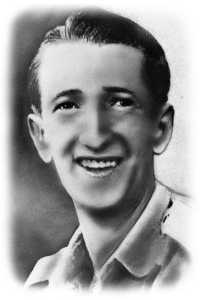
Private H R Madden, a POW of the Chinese Communist Forces in Korea from 24 April 1951 until about 6 November 1951 when he died as a result of ill treatment and malnutrition. (AWM 081389)
Like to copy this image? Please click here first
Twenty-nine Australians, including two officers, were taken prisoner of war in Korea. The treatment of Australian POWs in Korea was generally better than that meted out by the Japanese to their captives during the Second World War. However there were many Australian POWs who were kept in appalling conditions.
Food allowances were often meagre. One Australian, Private H. R. Madden, 3 RAR, who was captured at Kapyong, died from malnutrition. He was awarded the George Cross posthumously for resisting interrogation and for his generosity in looking after other prisoners.
The Chinese attempted to indoctrinate prisoners with communist ideas, but were unsuccessful with the Australians.
For some prisoners, conditions eventually improved, particularly after July 1951, when truce talks began. Generally conditions remained difficult and dangerous. North Korean and Chinese captors often ignored the articles of the 1949 Geneva Convention on the treatment of prisoners of war.
There were political advantages to be gained from the enemy by keeping POWs. The process of exchanging each other's prisoners was an important bargaining chip for North Korea in the process of attaining an armistice.
(Extract from Out in the Cold, The Australian War Memorial's online exhibition on Korea)





